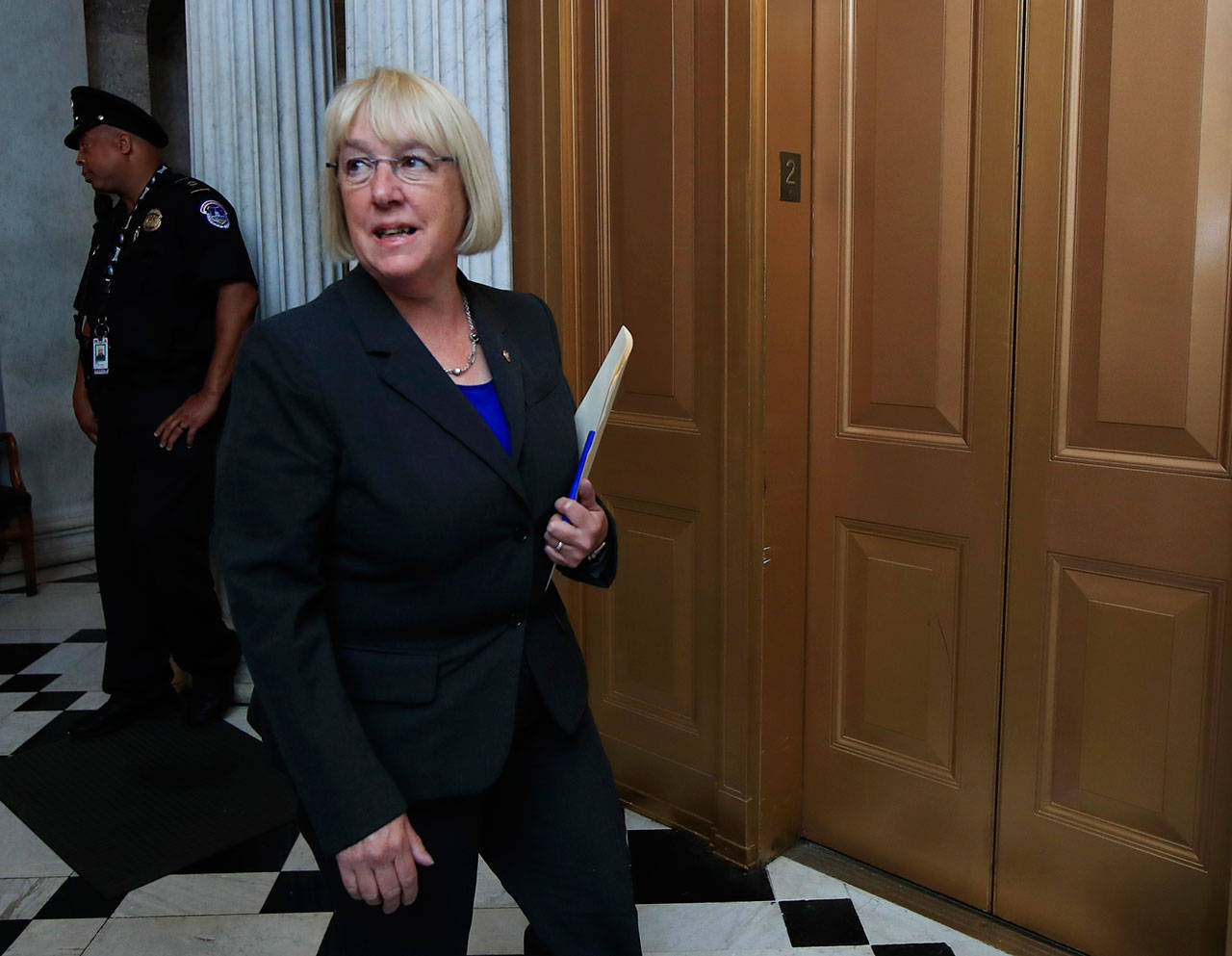By The Herald Editorial Board
The predominate attitude among Democrats in the U.S. Senate was not celebration but relief, said Sen. Patty Murray, D-Washington, following Republican Sen. John McCain’s famous thumbs-down, assuring a 51-49 defeat of the “skinny repeal” that would have tossed out the Obama-era Affordable Care Act and insurance coverage for millions.
“It’s a relief to know we’re moving on from this and have shut the door on that conversation,” said Murray, in a phone interview Friday afternoon following the early-morning vote.
Whether that door stays shut depends on President Trump and Republican leaders in Congress. Some, including Senate Majority Leader Mitch McConnell, want to move on to budget and tax reform issues. But Trump, in tweets over the weekend, lambasted Congress for failing to repeal and replace or just repeal Obamacare and address its replacement later. Instead, Trump vowed to let the ACA “implode.”
But it won’t implode without significant action — or inaction, rather — by the president. Trump, hoping to prod Republicans, has threatened to withhold cost-sharing reduction payments, reimbursements paid to health care insurers for the premiums and deductibles of low-income enrollees in the ACA’s insurance markets.
That’s a bad idea. Withholding the payments means reduced revenues for insurers who would pass on the costs of coverage to others with insurance, drop out of markets altogether or both. The result, according to a report by the Kaiser Family Foundation, would be a rate increase for most covered by insurance of about 19 percent. And while the federal government would save $7 billion in payments for this fiscal year, its overall costs would increase at least 23 percent because of the increased cost of tax credits provided to insure low-income families. Trump can’t withhold those.
Murray criticized the president’s threats on Monday: “If President Trump follows through on his threats, he will be fully responsible and accountable when Trumpcare-by-sabotage raises premiums for people across the country.”
There’s a better way, and some in Congress — Democrat and Republican — are beginning to talk about it, Murray said Friday.
Rather than repealing and replacing Obamacare, repair it.
The two parties have taken that path before, notably when Murray and Sen. Lamar Alexander, R-Tennessee, worked to rewrite the federal No Child Left Behind education requirements and passed in its place the Every Student Succeeds Act in 2015.
Alexander is the chairman of the Senate’s health care committee, on which Murray is the ranking Democrat. The two, Murray said, have a good working relationship and have already talked about how to move forward with the discussion, including hearings with experts who could advise the committee. That’s one part of the “regular order,” that McCain was talking about following his return to the Senate last week.
There’s more reason for optimism that the committee can advance bipartisan solutions. Along with Alexander, the committee includes the other two Republicans who voted no on the repeal: Sens. Susan Collins of Maine and Lisa Murkowski or Alaska, who should be open to that work. As well, Murray says, she’s worked with two other Republican committee members, Sens. Johnny Isakson of Georgia and Bill Cassidy of Louisiana, each with good points to make on health care legislation.
It’s not a simple fix. The health insurance markets must be stabilized, and the costs of prescription drugs need to be reduced or at least kept from skyrocketing. And while the Affordable Care Act reduced the percentage of Americans without coverage from about 17 percent to about 11 percent, that’s still a significant number without insurance.
President Trump can restore some stability just by ending his Twitter attacks on the ACA and the threat to stop payments that are spooking insurers and causing uncertainty in the market.
Congress, in particular the Senate’s health care committee, can begin hearings and talks about needed reforms to the Affordable Care Act.
“This will be hard,” Murray said. “All policies have consequences, so we have to know what we’re doing to move forward. We have to remake health care policy that impacts everybody, and get everyone involved.”
Congress should keep the repeal-and-replace door shut and open the door to a bipartisan fix.
Talk to us
> Give us your news tips.
> Send us a letter to the editor.
> More Herald contact information.

























